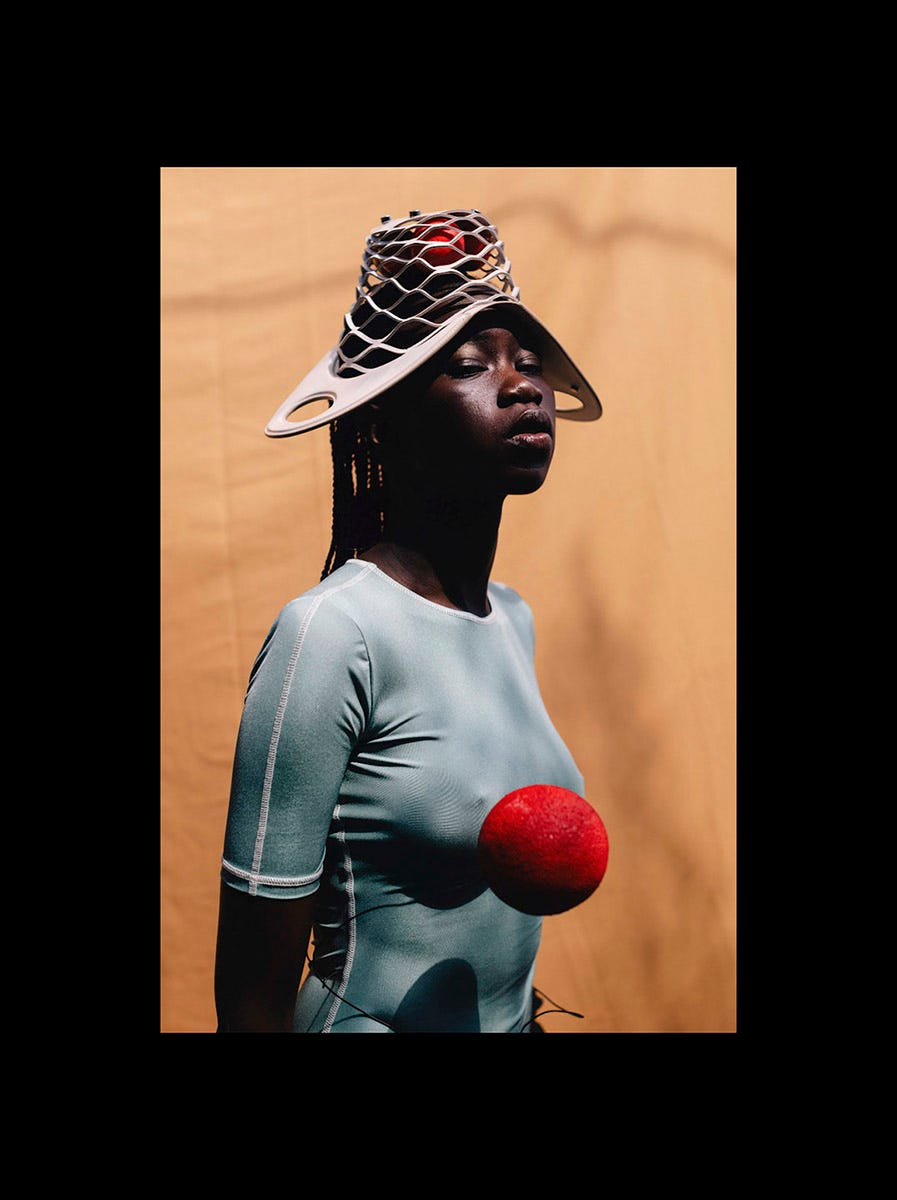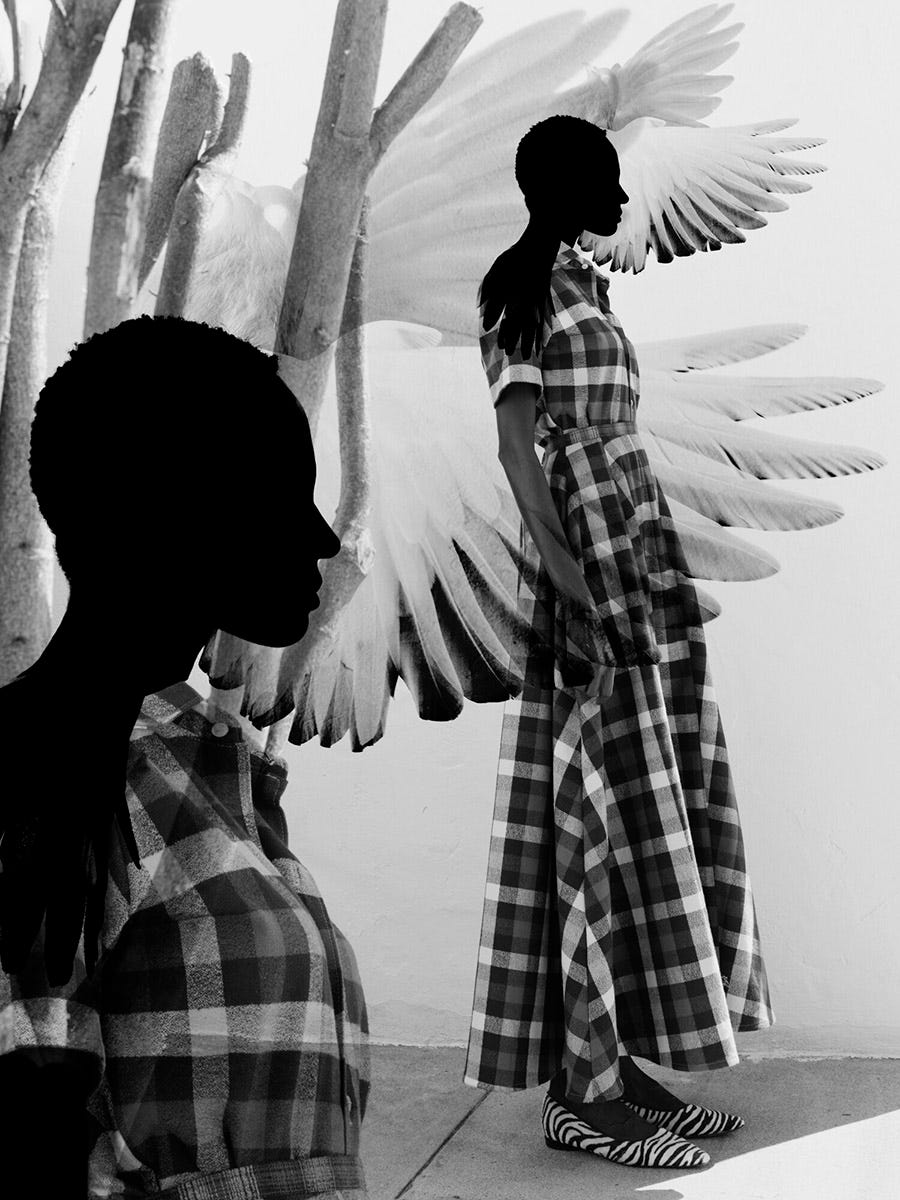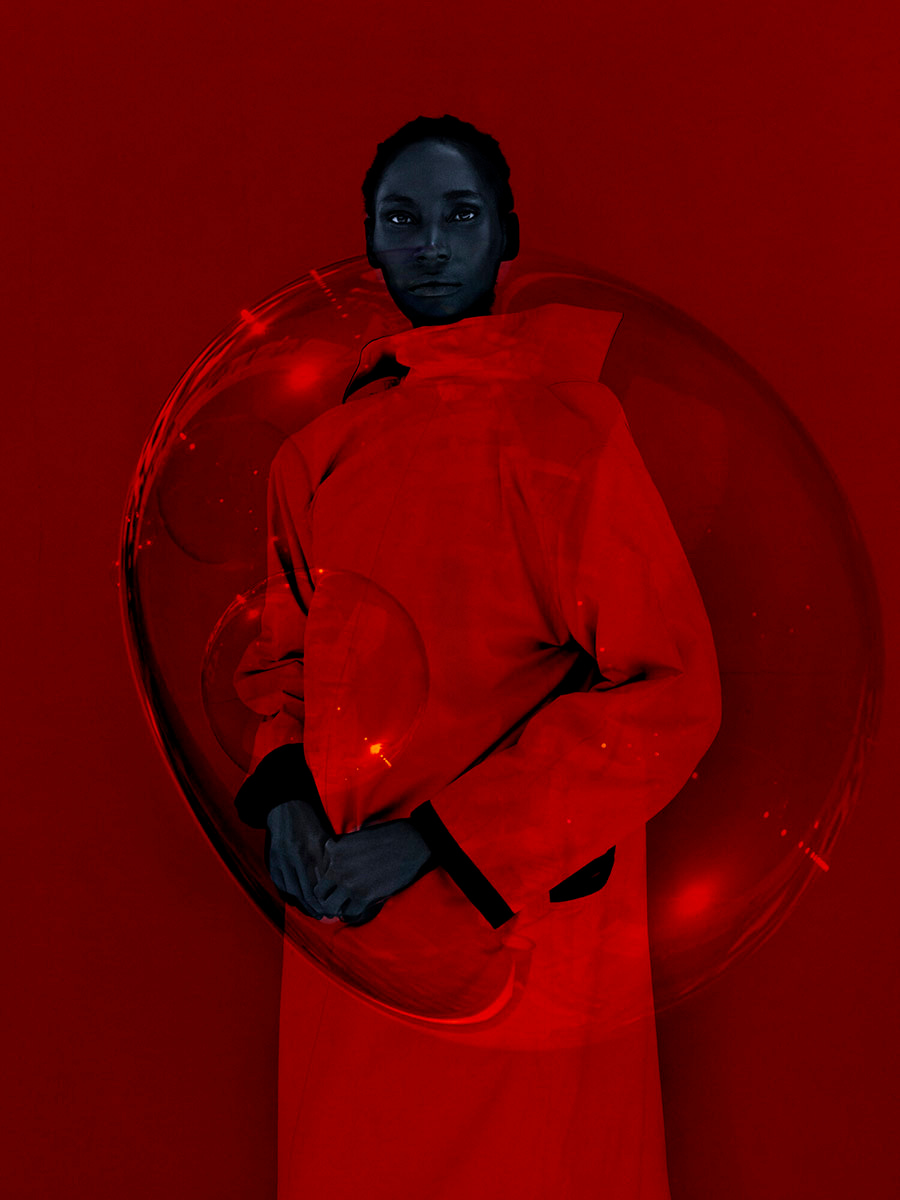The Colorful Fever Dream of Djeneba Aduayom
Interview and photos by one of my favorite photographers.
Welcome to In the Flash, a weekly, behind-the-lens dialogue on photography. To join the conversation
Looking at other photographer’s work is an essential part of my process. I browse through magazines to see who is shooting what, connect with people on social media and follow industry publications and newsletters. Once in a while, I find a photographer whose work both inspires me and makes me a bit angry in a “I wish I did that” kind of way. Artistic jealousy is an instinctive and motivating force. Without it, I’d be content and doing the same things I was a decade ago. That would be tragic.
So with that preface, I am introducing a new In the Flash section in which I’ll be interviewing photographers who trigger me and asking them a few questions about their creative process.
Djeneba Aduayom is a self-taught photographer with multicultural heritage who started her career in performance art. For the last few years, Djeneba, who is based in Southern California, has been shooting for every major publication, from the New York Times Magazine to Vanity Fair.
I first saw Djeneba’s work pop up in The Cut, New York Magazine, and its radiant colors made me swoon. I followed her on Instagram to see what else she was up to, and when I looked closer, I still had no idea what she was photographing; was it fashion? portraiture? a conceptual project? The lack of boundaries between what are often disparate categories made me pause on each photo and weave my own stories into it. Djeneba’s photographs are wildly inventive and full of movement, reflecting her past as a dancer. At the same time, they give the impression of being meticulously constructed. Every element, from objects to expressions to colors, opens a door to an emotional narrative. There is a dreamlike quality to the work, and even though I spy elements of constructivism and surrealism, it feels fresh and modern.
You do lavish color and stark black and white, while usually photographers see in one or the other. Do you have a preference? How do you choose which photos will be color or black and white?
I don't have a strict preference between color and black and white photography. Unlike many photographers who gravitate towards one or the other, my approach is more fluid and context-dependent. The choice between color and black and white is always informed by the story I'm trying to tell visually and can even shift mid-project.
My perception of the world isn't linear; it's multidimensional. I often see the 'potentiality' in a subject - the multiple ways it can be interpreted and expressed. This ability to perceive various possibilities simultaneously influences my photographic choices.
How do you work out your photo concepts - writing down and planning beforehand/spontaneously during the shoot/a mix of both?
My approach to developing photo concepts is versatile and adaptable, rather than following a single, rigid method. The process varies depending on the nature of the project, client-based or personal, but is always a mix of careful planning and in-the-moment responsiveness. I can adhere to a structured plan when necessary, but I'm equally comfortable adapting fluidly to the situation at hand.
As someone with dyslexia, I've learned the importance of organization and planning ahead. This preparation gives me a solid foundation, even though I'm fully aware that plans often change once I'm on set. I've cultivated a balance between being organized and remaining flexible.
In personal or exploratory work, I allow myself freedom to work spontaneously and intuitively. This approach often leads to unexpected creative discoveries.
Are you reading anything right now?
The Gift Of Dyslexia by Ronald D Davis
Do you ever have creative burnouts? How do you handle them?
Absolutely, I experience creative burnouts, as most artists do at various points in their careers. I follow a tiered process that helps me navigate through periods of burnout, allowing me to reconnect with my creativity and return to my work with renewed perspective and energy. It's a personal journey of self-discovery and self-care that I've found essential for sustaining my creative practice long-term. These are my usual steps.
Pause and Reflect: I try to stop and stand still, which I find challenging but necessary. It's a conscious effort to step back from creative pressures.
Self-Compassion: I strive to be kind to myself and avoid adding extra pressure, though this too can be quite difficult.
Engage in Unrelated Activities: I intentionally shift my focus to activities unconnected to photography projects, from spending time in nature to listening to music. I often seek solitude and silence for weeks at a time.
Introspection: I turn inward to observe and analyze the emotions I'm experiencing and identify their triggers. This self-reflection is crucial for understanding the root causes of my burnout.
Realignment: Once I've pinpointed the triggers, I make conscious choices to remove or mitigate factors that disrupt my emotional balance and alignment.
What is your favorite photography tip/hack that has helped you with your process?
"The most valuable 'hack' in my photography journey isn't a technical tip but rather a philosophical approach: unwavering authenticity to my core self. In today's world, particularly with the pervasive influence of social media and societal expectations, there's a constant pressure to fit into predefined categories or styles. I've found that the key to my creative process is deliberately resisting this urge to be classified or 'put in a box'.
The commitment to authenticity enables me to create work that's truly transformative and reflective of my personal growth as an artist. It's not about following trends or meeting external expectations, but about nurturing and expressing my distinctive creative voice. I ensure that my photography remains a genuine expression of my experiences and interpretations, rather than a product of external pressures or categorizations. This 'hack' is instrumental in preserving the integrity and originality of my creative process."
For more of Djeneba’s work, check out her vibrant Instagram and her website.











Thank you for introducing me to Djeneba's work - it's absolutely stunning. Love Djeneba's response to the "hack" question. 🍷
Really stunning work! Thanks for sharing Djeneba with us ❤️